NEWS
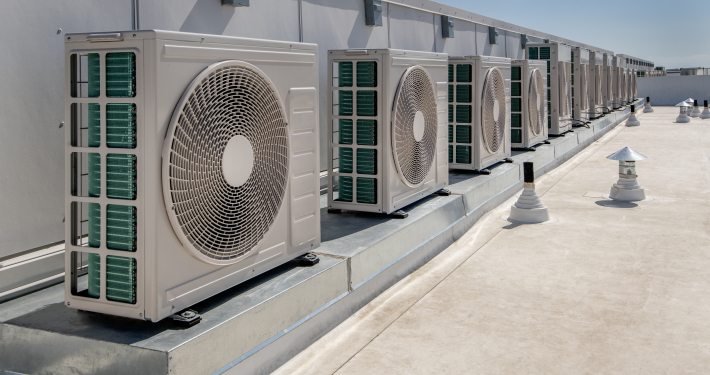 Keeping California children cool: strategies for safe schools and homes
Keeping California children cool: strategies for safe schools and homes
New UCLA report highlights actionable solutions for legislators to protect kids from heat.
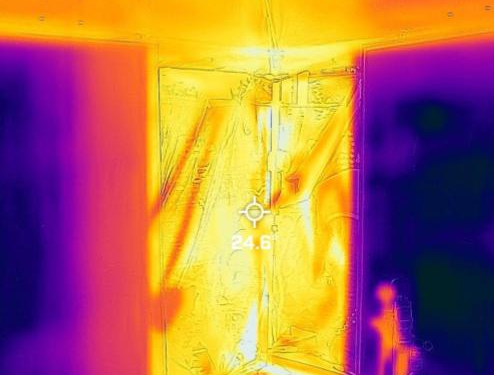 Beyond shade: UCLA researchers improve radiant cooling to make outdoor temperatures feel cooler
Beyond shade: UCLA researchers improve radiant cooling to make outdoor temperatures feel cooler
The approach uses low-cost, scalable, transparent and infrared-reflective surfaces and hydronic panels.
 National shade map from UCLA and American Forests launched to combat deadly urban heat
National shade map from UCLA and American Forests launched to combat deadly urban heat
This new tool pinpoints where shade is lacking across 360-plus cities and towns.
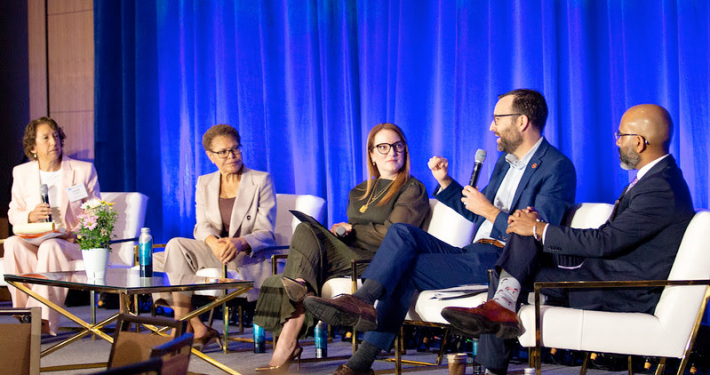 UCLA Luskin Summit 2025: A Vision for Equitable Recovery After the L.A. Fires
UCLA Luskin Summit 2025: A Vision for Equitable Recovery After the L.A. Fires
The UCLA Luskin Summit 2025 brought experts together to explore pathways to equitable and resilient rebuilding in the wake of the LA Fires.
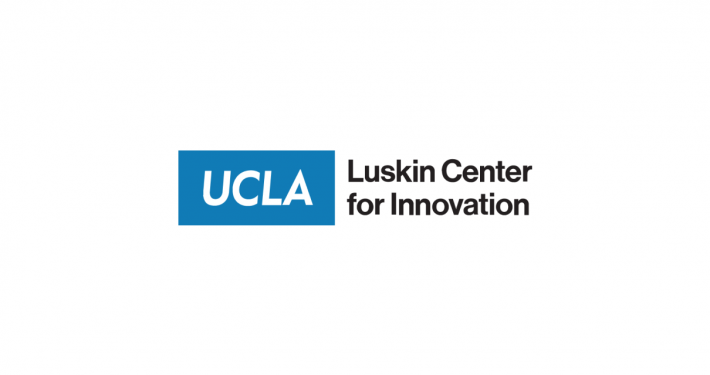 On the fires, from UCLA Luskin Center for Innovation
On the fires, from UCLA Luskin Center for Innovation
In the coming weeks, we will work with our colleagues at UCLA and partners across the region to help shape efforts that expedite recovery while advancing equity and resilience in our rapidly changing environment.
 The Luskin Center for Innovation-based Center for Heat Resilient Communities is now accepting applications
The Luskin Center for Innovation-based Center for Heat Resilient Communities is now accepting applications
The Center will engage and support 10 communities and tribal entities in determining the best strategies for local heat mitigation and management.
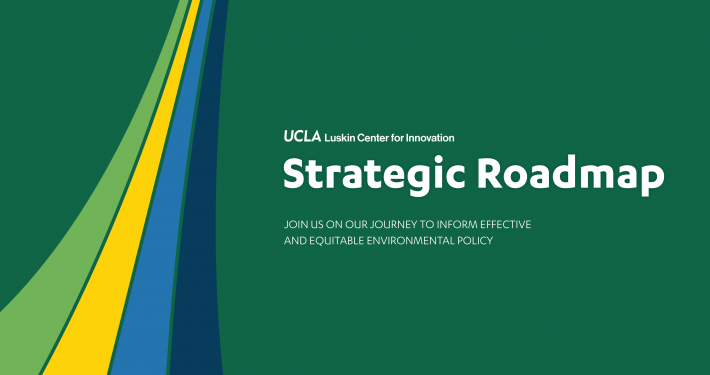 UCLA Luskin Center for Innovation releases Strategic Roadmap
UCLA Luskin Center for Innovation releases Strategic Roadmap
Journeying through 15 years of impact, our priorities for the next few years, and opportunities to partner
 Picture by Tambako the Jaguar
UCLA to lead the new Center of Excellence for Heat Resilient Communities
Picture by Tambako the Jaguar
UCLA to lead the new Center of Excellence for Heat Resilient Communities
The Luskin Center for Innovation receives a first-of-its-kind federal grant to help protect communities from heat dangers.
 2023 Impact Report: Our New Era of Shaping Effective and Equitable Environmental Policy Solutions
2023 Impact Report: Our New Era of Shaping Effective and Equitable Environmental Policy Solutions
A brief, interactive summary of select environmental policy impacts in 2023
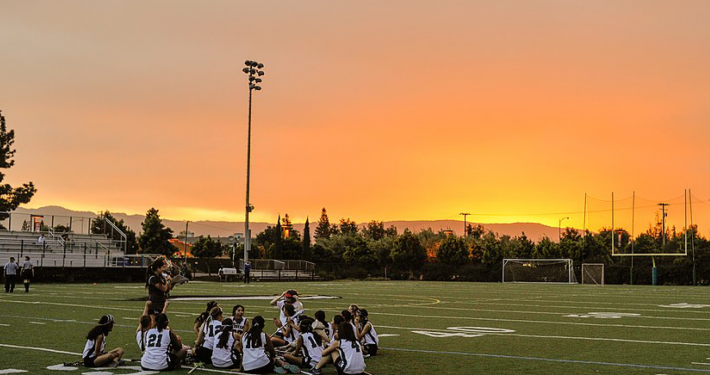 Harker School Staff Photographer / Wikimedia Commons
Researchers equip policymakers to protect students from extreme heat
Harker School Staff Photographer / Wikimedia Commons
Researchers equip policymakers to protect students from extreme heat
The Luskin Center for Innovation releases fact sheets and visuals to inform policy and funding decisions for heat-resilient K-12 schools
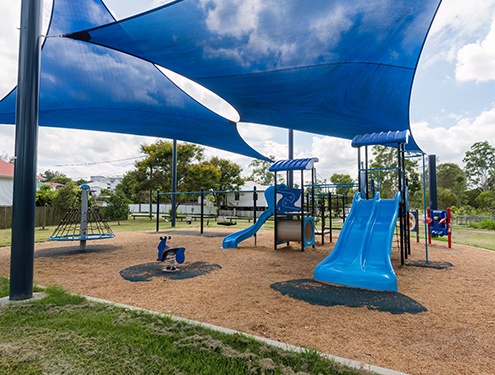 Luskin researcher and partners publish Nature Commentary defining shade deserts and ways to eliminate them
Luskin researcher and partners publish Nature Commentary defining shade deserts and ways to eliminate them
Shade is an essential solution to reduce health disparities exacerbated by extreme heat
 Shining a light on hidden corners of environmental injustice
Shining a light on hidden corners of environmental injustice
Catherine Coleman Flowers fights for the health and dignity of rural communities where water and sanitation systems are failing
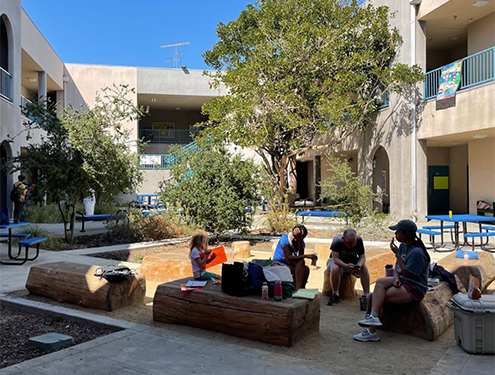 V. Kelly Turner / Luskin Center for Innovation
California’s K-12 education system is under-prepared for rising temperatures
V. Kelly Turner / Luskin Center for Innovation
California’s K-12 education system is under-prepared for rising temperatures
Heat makes it harder for students to learn and for teachers to teach. Previous research supported by the UCLA Luskin Center for Innovation quantified how these effects exacerbate educational and racial inequalities.
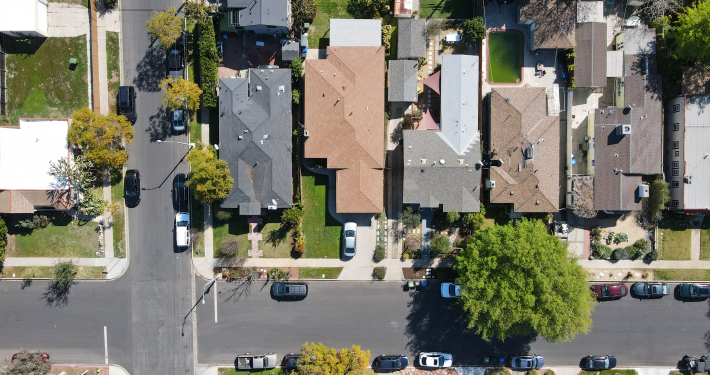 Thomas De Wever / iStock
UCLA researchers study impacts of streets on urban heat
Thomas De Wever / iStock
UCLA researchers study impacts of streets on urban heat
New research finds shade, such as from trees, to be the most effective strategy to cool hot city streets
 Celebrating our impact in 2022
Celebrating our impact in 2022
Meet our new faculty director and explore our actionable research for a sustainable future in our new Impact Report
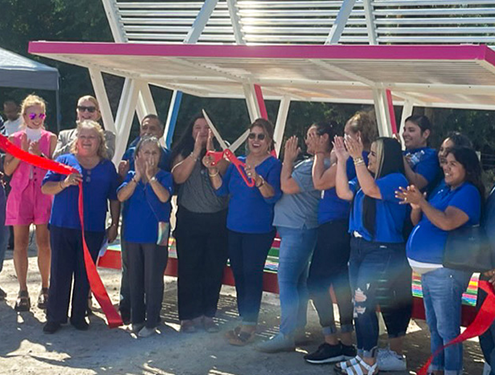 New shade shelter prototype aims to keep transit riders cool
New shade shelter prototype aims to keep transit riders cool
Community-driven research strives to prevent heat-related illnesses
 Heat waves aren’t going anywhere. Here’s how we can prepare.
Heat waves aren’t going anywhere. Here’s how we can prepare.
UCLA’s V. Kelly Turner takes a multi-pronged approach that emphasizes equitable solutions to this dangerous problem
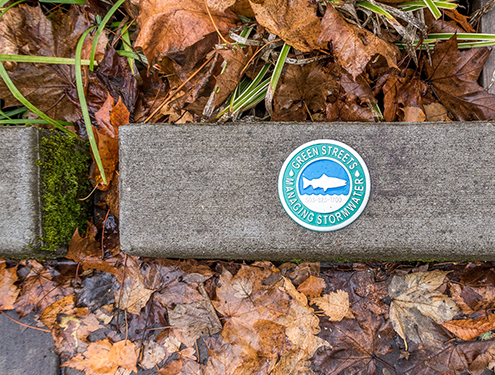 Photo credit: Mark McClure / Flickr (CC BY-NC-ND 2.0 license)
What influences local leaders to prioritize green stormwater solutions?
Photo credit: Mark McClure / Flickr (CC BY-NC-ND 2.0 license)
What influences local leaders to prioritize green stormwater solutions?
A new study finds that decisionmakers who value environmental protection are most likely to choose green stormwater management tactics
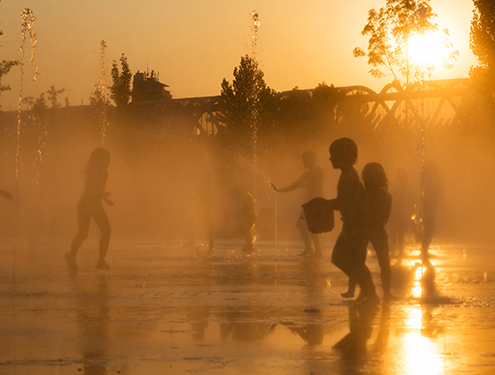 Most major U.S. cities are underprepared for rising temperatures
Most major U.S. cities are underprepared for rising temperatures
A UCLA-led analysis highlights gaps in municipal planning for often-deadly rising temperatures
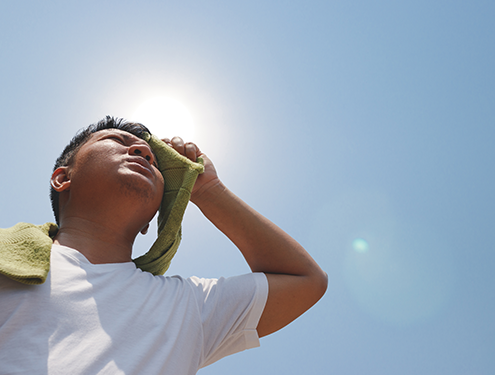 California needs a people-focused and equity-driven approach to address extreme heat
California needs a people-focused and equity-driven approach to address extreme heat
New research aims to further inform the state’s heat planning, legislative and budget decisions
 More Nuance Is Needed to Accurately Measure Extreme Heat in Cities
More Nuance Is Needed to Accurately Measure Extreme Heat in Cities
A research team led by V. Kelly Turner calls for more comprehensive urban heat data — an essential element of any strategy to cool cities down.
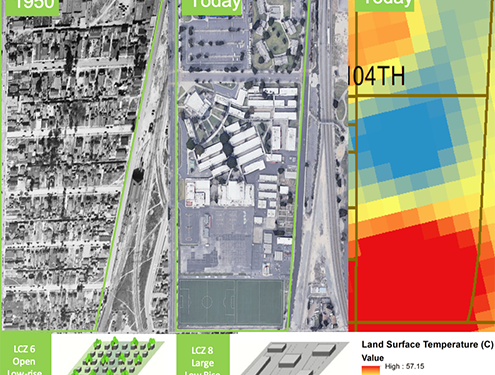 Turner and Colleagues Receive Grant to Pinpoint Sources of Heat Injustice
Turner and Colleagues Receive Grant to Pinpoint Sources of Heat Injustice
Through modeling, data and storytelling, researchers will explore why historically redlined neighborhoods face extreme heat burdens today.
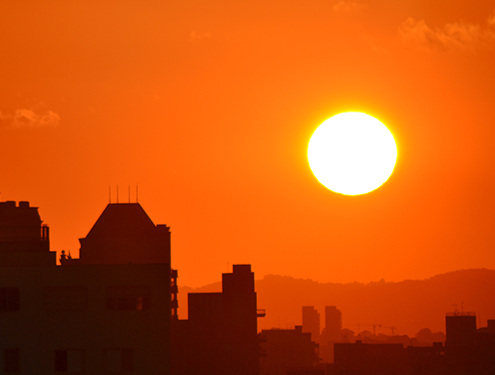 Researchers Call for Attention to ‘Heat Governance’ to Protect Those Most at Risk from Extreme Heat
Researchers Call for Attention to ‘Heat Governance’ to Protect Those Most at Risk from Extreme Heat
V. Kelly Turner and coauthors outline necessary components of an equitable strategy to address extreme heat

